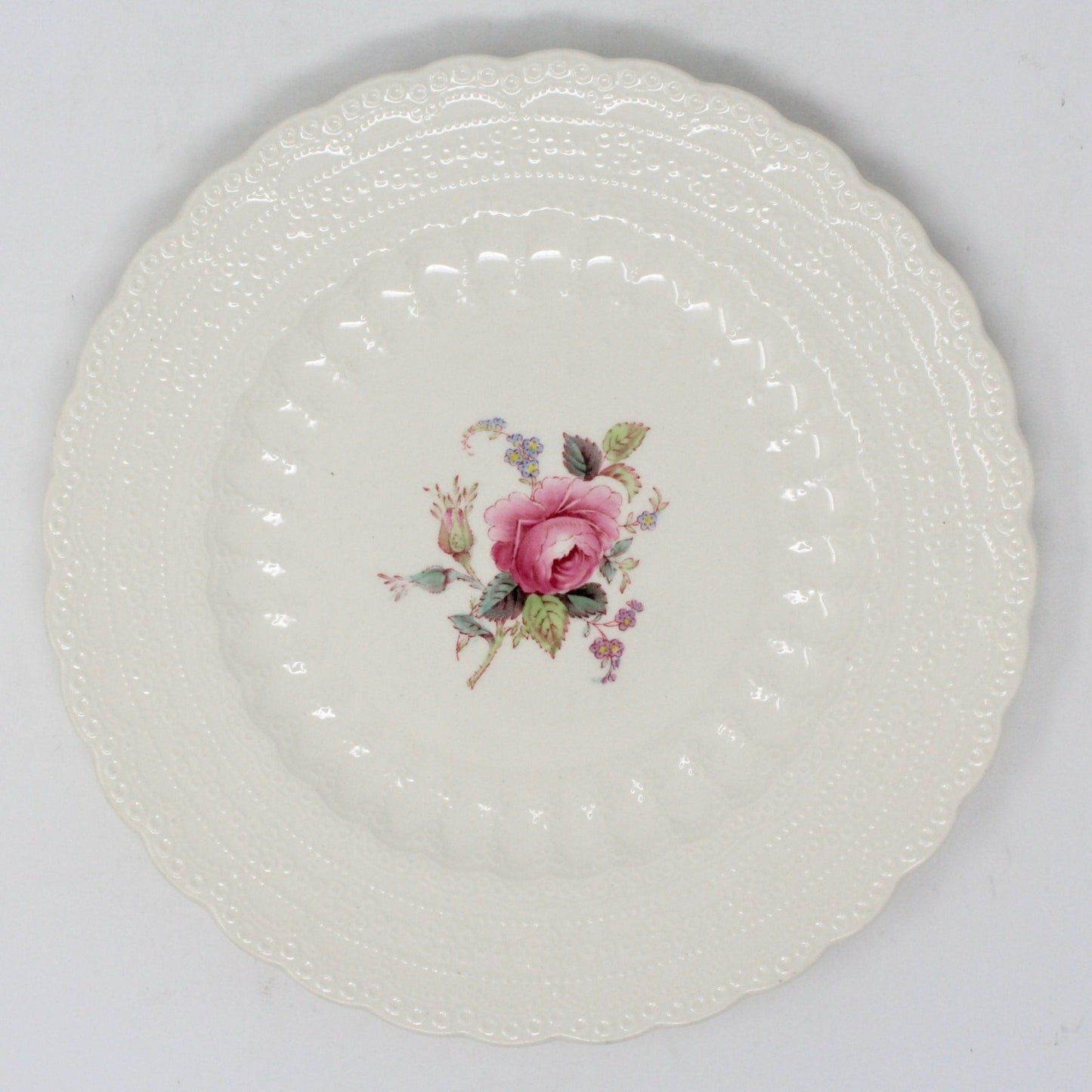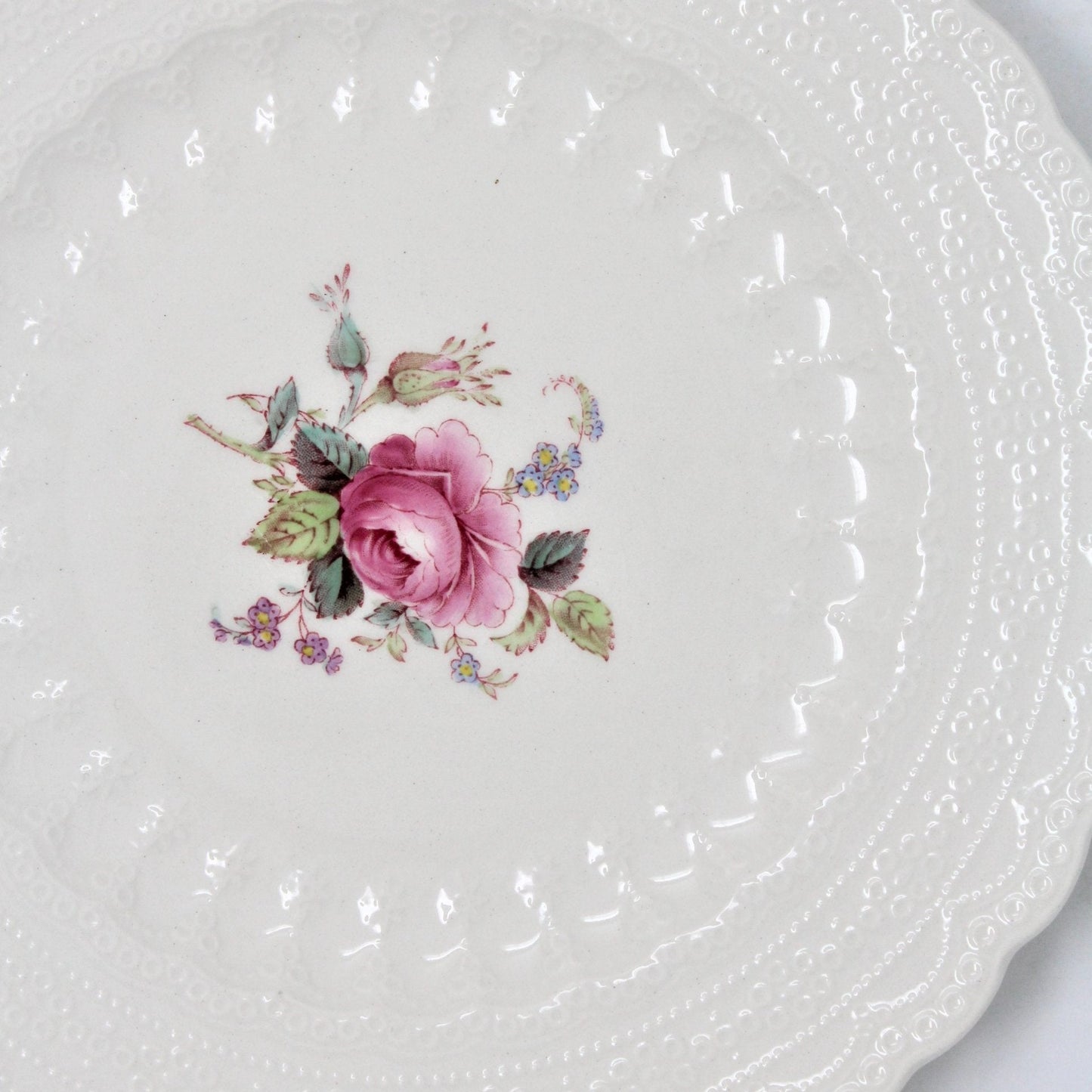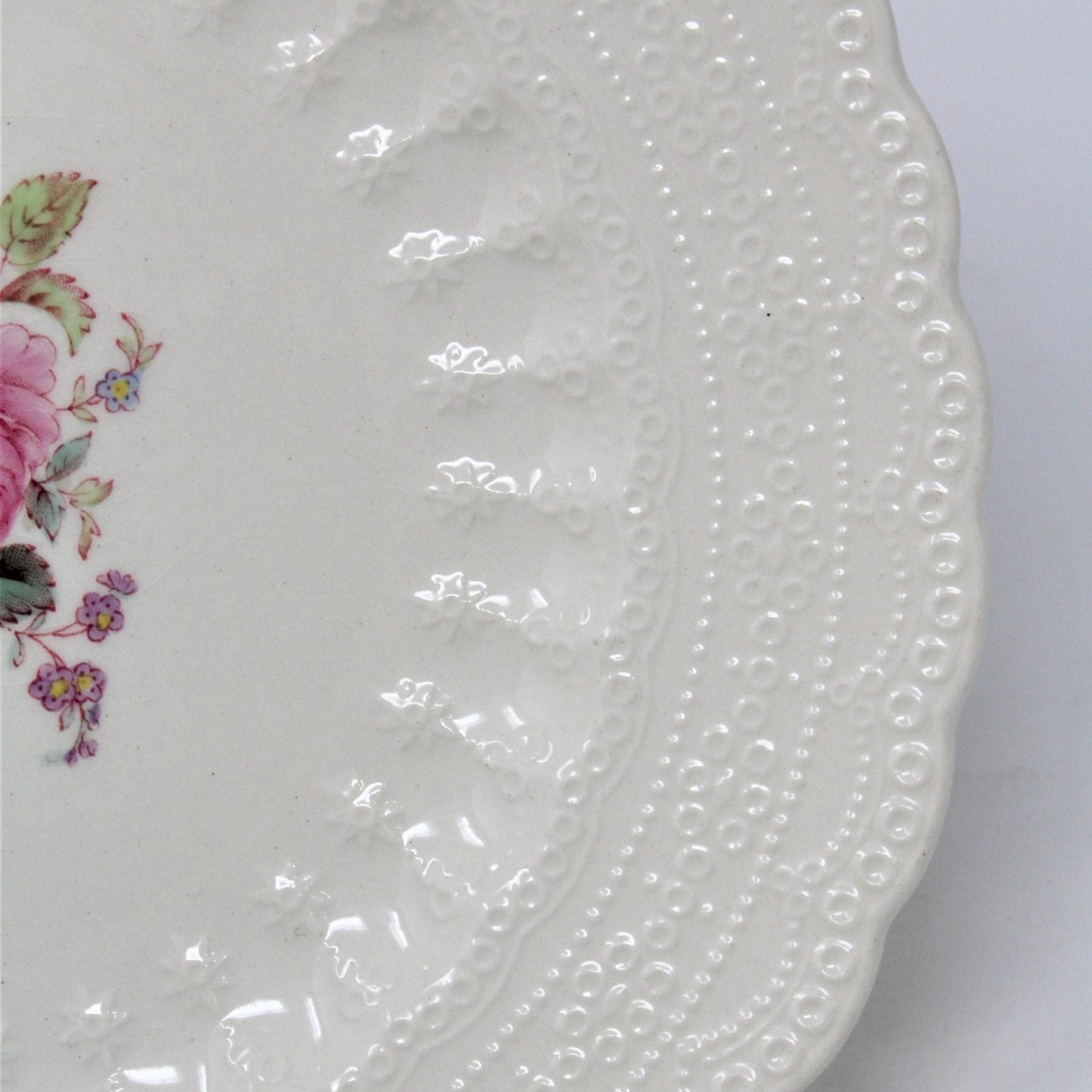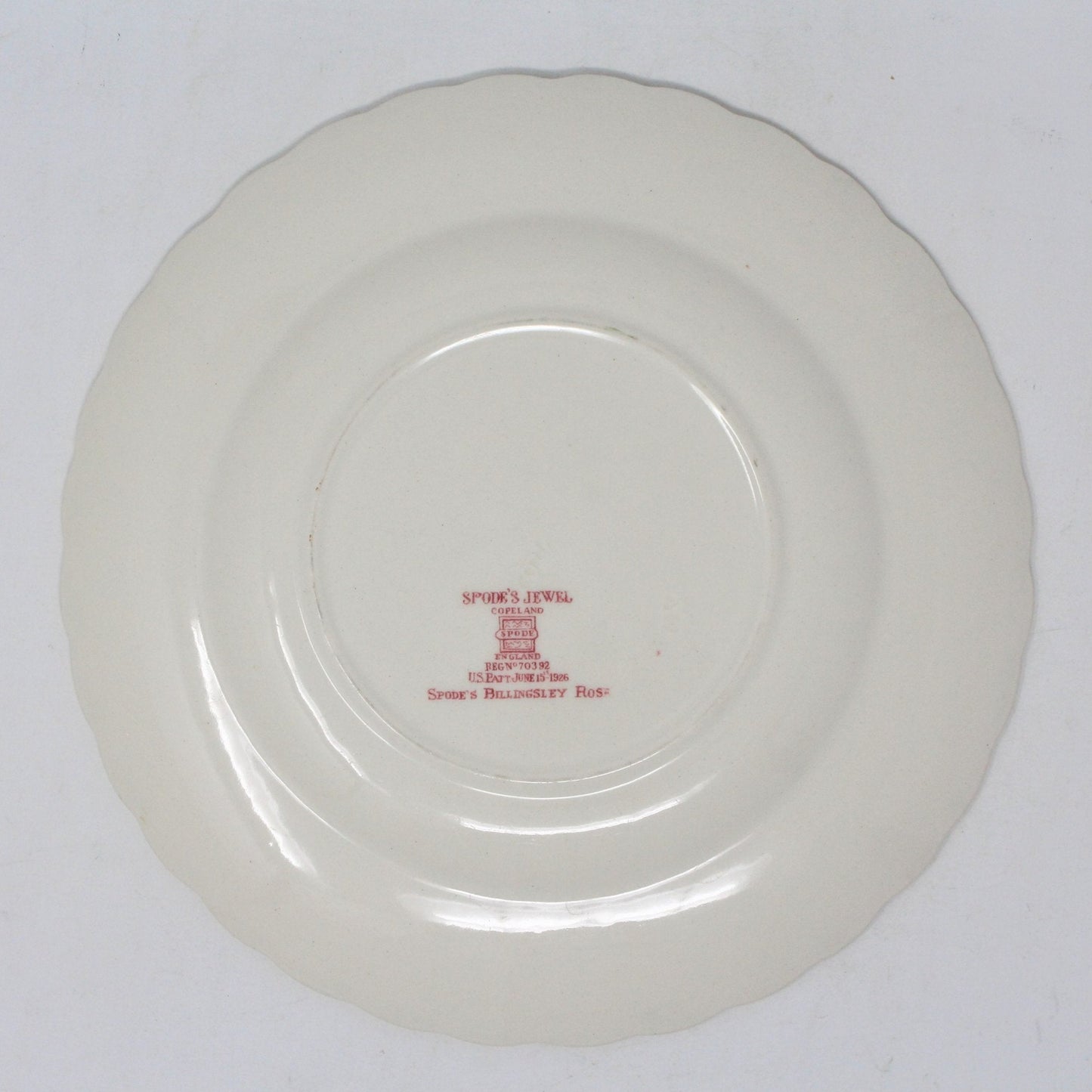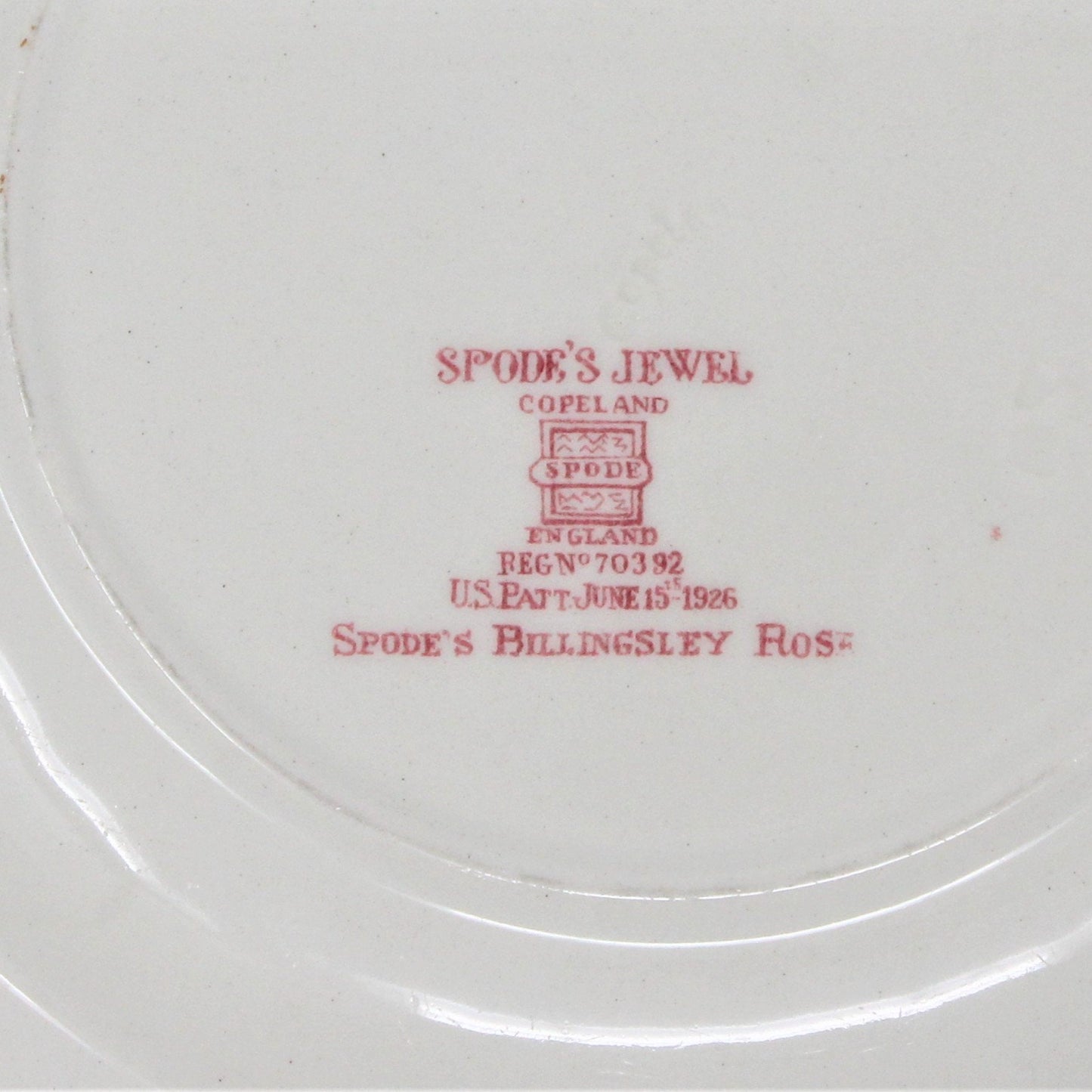Spode
Dessert / Salad Plates, Spode Copeland, Billingsley Rose, Earthenware, English Vintage
Dessert / Salad Plates, Spode Copeland, Billingsley Rose, Earthenware, English Vintage
Couldn't load pickup availability
- Vintage Salad / Dessert Plate, Spode Copeland Billingsley Rose (Old Backstamp), Classic Tableware, Romantic Pink Rose and Lace Pattern, English Earthenware, (Discontinued)
- Made in: Staffordshire, England
- Vintage: 1944
- Details: This is a gorgeous Salad Plate in one of the most romantic patterns ever produced by Spode Copeland called "Billingsley Rose". Reminds us of a very delicate, intricate lace all along the border and a sweet pink rose in the center. Absolutely gorgeous detail! Hand Washing is necessary. This pattern was produced from 1924 through 1969. According to the impressed stamp, our Salad Plates are from 1944, we have 2 from November, and 1 from December, 3 salad plates all sold separately. If any of these dates are important to you, please let us know so we can send you the desired plate. They are all stamped with the old backstamp, ours is red: "Spode's Jewel, Copeland, Spode England, Reg No 70392 U.S. Pat. June 15th 1926, Spode's Billingsley Rose". We have 3 of these available, we offer a 10% discount with the purchase of three or more pieces in this pattern (mix any 3 Billingsley Rose items). If interested, please Contact Us, let us know which pieces you'd like and we'll send you a discount code.
- Material: Earthenware
- Dimensions: 8.0 inches in Diameter
- Condition: Vintage - Used. Excellent Condition. There are no chips or scratches on any of the plates, some have crazing, others do not. The floral designs in the center are all in excellent condition. Please review all pictures and make sure you love this item before purchasing, we can't accept returns. All sales final. Please remember these are used items, they are NOT new, every effort has been made to show any scratches, wear and tear and imperfections.
Spode was founded in 1770 by Josiah Spode in Stoke-on-Trent, England. Josiah was a manager at the Turner and Banks factory, when Turner died, he took over the business. By 1776, he was producing earthenware under the famous Spode name. Josiah is credited with perfecting two extremely important techniques that were crucial to the worldwide success of the English pottery. First was the technique for transfer printing in underglaze blue on fine earthenware and second with developing the formula for fine bone china that was generally adopted by the industry. In 1797 Spode died and left the business to his son, Josiah Spode. When Josiah Spode died, he was succeeded by his son, Josiah Spode III who ran the business until he died in 1829. In 1833 Spode was purchased by a partner of Josiah Spode III named William Taylor Copeland. Mr. Taylor entered into a partnership with colleague Thomas Garrett, and the firm was known as Copeland & Garrett until 1847. After 1847 the business continued until 1970 as W.T. Copeland and sons, and again the term 'Spode' or 'Late Spode' continued in use alongside the name of Copeland. The company was sold to the Carborundum Company Ltd. by the Copeland family in 1966. In honor of the company's 200th anniversary in 1970, the name was changed back to "Spode" in honor of its founder, Josiah Spode. Spode merged with the Worcester Royal Porcelain Company in 1976 to form Royal Worcester Spode, however, the purchase did not include Royal Worcester or Spode manufacturing facilities. In 2006, the business merged with Royal Worcester. The merged company entered administration on 6 November 2008. The brand names Royal Worcester and Spode, the intellectual property and some of the stock were acquired by Portmeirion Group on 23 April 2009. Many items in Spode's Blue Italian and Woodland ranges are now made at Portmeirion Group's factory in Stoke-on-Trent.
Share
